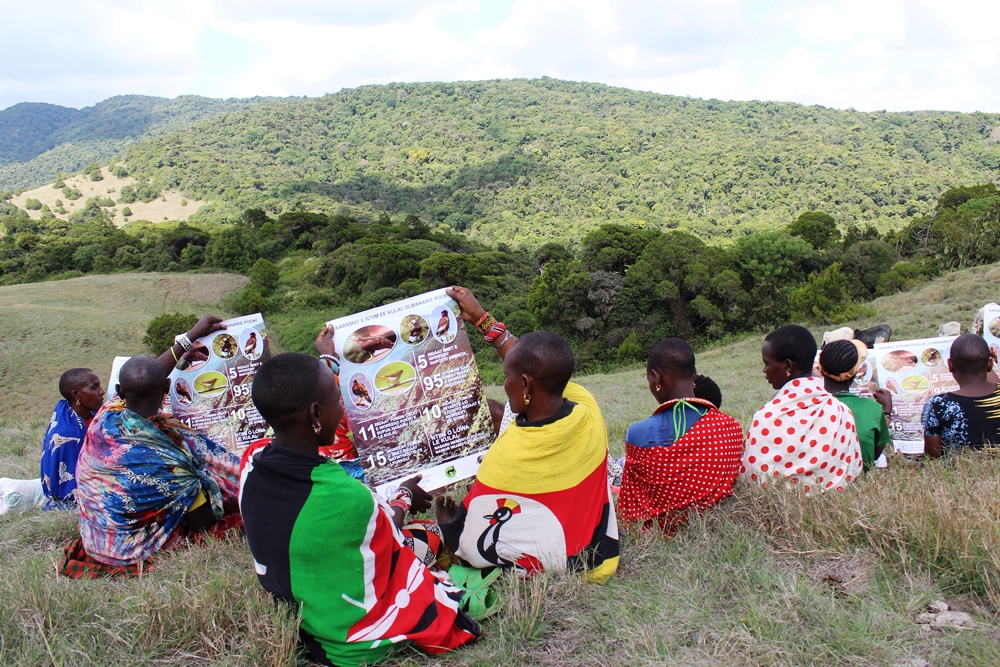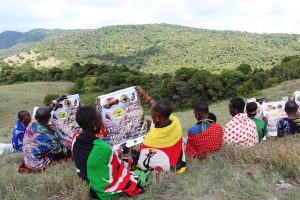IMAGE/GLOBAL WITNESS
Next week, leaders, policymakers and companies from around the world will meet in Dubai, United Arab Emirates (UAE) for the COP28 international climate talks to discuss how we can tackle the climate emergency.
“This year’s COP may be one of the last remaining opportunities for global leaders to take serious action on the climate crisis before the world breaches the 1.5°C limit,” Global Witness says.
It adds a central part of COP28 discussion will revolve around the Global Stocktake (GST), which is used to assess how close countries are collectively to the goals set in the Paris Agreement and identify gaps and challenges in climate action.
In other words, they’re taking stock of how much progress the world has made so far – and agreeing on solutions for areas where we need to improve.
According to Global Witness, the UAE has also boasted that COP28 will be the “most inclusive” COP ever. Yet, once again, we are expecting some of the world’s biggest oil and gas companies to be there.
The public watchdog body says representatives of the fossil fuel industry have attended UN climate talks at least 7,200 times over the past two decades.
And Greenpeace Africa says this year represents a pivotal moment for global climate action adding that under the Paris Agreement, 195 countries committed to “holding the increase in the global average temperature to well below 2°C above pre-industrial levels and pursuing efforts to limit the temperature increase to 1.5°C above pre-industrial levels.”
Greenpeace Africa adds that nevertheless, harmful emissions continue to surge and international oil and gas companies are scrambling for Africa as a new frontier of extraction.
“The Dubai conference presents an opportunity for nations to update their national climate action plans, end drilling and make polluters start paying,” Greenpeace Africa notes in a statement.
The National Oceanography Centre (NOC) has joined dozens of marine research organisations worldwide to call for ocean science to lead climate solutions ahead of COP28.
This follows the unveiling of the Ocean Pavilion’s COP28 Ocean Declaration signed by CEO Professor Ed Hill. The declaration recognises the critical role of the ocean in regulating climate change and calls on world leaders to increase ocean observations.
In a statement National Oceanography Centre (NOC) said the declaration recognises the critical role of the ocean in regulating climate change and called on world leaders to increase ocean observations
“2023 saw record-breaking ocean changes, and scientists need more data to understand the implications. COP28 represents a vital chance to recognise critical role of ocean in climate regulation,” the statement said.
At COP28, nations will unite in a collaborative effort to address and advance the global climate objectives outlined in the Paris Agreement and the Convention. This is the 28th annual conference taking place from 30 November to 12 December 2023 at Expo City, Dubai in the United Arab Emirates.
What is COP?
COP stands for ‘Conference of the Parties’, which is a generic phrase in International Relations-speak meaning a committee created after an international treaty is signed, tasked with making decisions about how that treaty is implemented.
There are all kinds of COPs for various international agreements, from chemical weapons to combating desertification. But the term COP has come to be associated with the meetings of one particular committee: that created after the signing of the United Nations Framework Convention on Climate Change (UNFCCC).
A total of 154 countries signed the UNFCCC in June 1992, agreeing to combat harmful human impacts on the climate. Since then, COP meetings have been held (almost) annually to discuss how exactly that should be achieved, and monitor what progress has been made. Each COP is usually referred to by its number in the series, e.g. COP26 was the 26th COP meeting.
Each year a different country becomes the COP president, in charge of organising and running that year’s meeting. Usually this means that the host city moves each year, too. Any new agreements which are made at COP tend to be named after the host city, e.g. the 2015 Paris Agreement or the 2021 Glasgow Climate Pact.
Who is involved in COP?
Politicians, diplomats, and representatives of national governments are perhaps the most important people invited to COP, but they’re far from the only ones. Many other people attend to try to influence the outcome.
“For example, many fossil fuel lobbyists join the talks to attempt to protect their industry from much-needed action to keep coal, oil, and gas in the ground. At COP27, we found that there were twice as many fossil fuel lobbyists as delegates from the official UN constituency for indigenous peoples,” Global Witness says.

IMAGE/GLOBAL WITNESS
The lobby says on the opposing side, there are land and environmental defenders and Indigenous people calling for greater protections for their territories against exploitation by environmentally destructive industries such as logging, mining, and industrial agribusiness.
Climate organisations such as Global Witness often send representatives to advocate for rapid and ambitious action to tackle the climate crisis.
It says, there are often barriers in place – economic, legal and physical – which prevent environmental activists and civil society organisations from playing a full part.
What was agreed at COP27 last year?
“Despite knowing for a long time that fossil fuels are the primary driver of climate change, they feature very little in the final agreement reached. Countries (once again) failed to commit to anything more than the “phasedown of unabated coal power and phaseout of inefficient fossil fuel subsidies.” Oil and gas don’t even get a mention,” it adds.
It notes this outcome is perhaps unsurprising given the enormous presence that the fossil fuel industry had in Sharm El-Sheikh at COP27. Our analysis found 636 fossil fuel lobbyists were granted access to the talks, with a presence larger than any country delegation after the United Arab Emirates – the host of this year’s COP28.
Global Witness however says on the positive side, despite strong pushback from UN officials, the final decision referenced the human right to a clean, healthy and sustainable environment. It also highlighted the Paris Agreement language recognising the rights of Indigenous Peoples, local communities and people in vulnerable situations. Read more about our COP27 verdict.
What will be discussed at COP28 this year?
The adds that high on the agenda for COP28 is the conclusion of the first ever Global Stocktake (GST), the main mechanism to assess progress on the goals set in the Paris Agreement.
“The GST will be an opportunity for countries to assess their climate efforts so far and to identify the gaps in current climate action,” it notes.
It says beyond making COP28 the “most inclusive” ever, the UAE has also announced three additional priorities for COP28: fast-tracking the energy transition and slashing emissions before 2030; transforming climate finance, by delivering on old promises and setting the framework for a new deal on finance; and putting nature, people, live and livelihoods at the heart of climate action.
What are the contentious issues at this year’s COP?
On fossil fuels, Global Witness says it want to see countries pursuing the only option available to them: a complete phase-out of all fossil fuels – not just “unabated” ones.
It added that the UAE’s presidential priorities include a significant language change from previous years, referring to “the inevitable and responsible phase-down of all fossil fuels.”
“We’ll be keeping an eye on whether the UAE meets its promise to host the “most inclusive” COP ever. Land and environmental defenders are on the frontlines of the climate crisis, the guardians of the world’s forests and biodiversity. We can’t solve the climate crisis if they continue to be denied a seat at the table,” Global Witness added.
The public watchdog body said the climate finance discussions will be high on everyone’s watchlist.
“Setting up the long-awaited loss and damage fund was a major achievement of COP27— now we’ll see if those funds materialise, but precedent suggests that this is far from guaranteed,” it notes.
It says in 2009, wealthy countries pledged to mobilise $100 billion per year by 2020 to help poorer countries shift to clean energy and adapt to future climate risks adding that funds have consistently fallen short.
“We’re watching to see if countries meet the goal agreed at COP26 to double finance to support countries to adapt to climate change by 2025,” it summarises.












